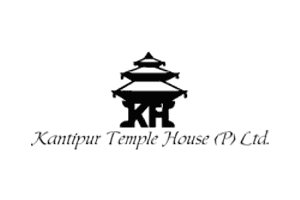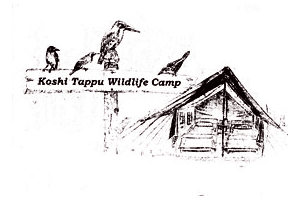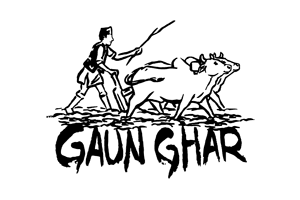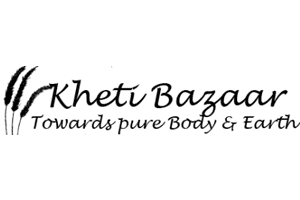Sustainability Policy of The Explore Nepal Group 2022-2026
MISSION STATEMENT
“For more than 20 years, we have strived to devise tours that have minimal negative impact to the great Himalayan region and beyond. Our aim is to bring a wholesome sustainable practice in our whole business cycle and exemplify a culture of giving as much as we take from society and negating socio-cultural,economic,environmental impacts as much as possible.”
“TOURISM THAT DOESN'T COST THE EARTH”
The Explore Nepal Group has been pioneering sustainable and responsible tourism and travel in Nepal since 1988. We offer unique and exciting adventures in some of the world’s most incredible places. Every one of our trips, tours and activities are designed to offer you an unforgettable, once in a lifetime experience that is culturally and spiritually insightful whilst holding true to our environmental and social and cultural sustainability values and responsibilities.
More than any other tour company, we work hard to ensure every aspect of your stay is environmentally friendly and socially responsible whilst providing you with the best that Nepali hospitality has to offer. This is eco-tourism in style and comfort.
Our founder Bharat Basnet has always been a lover of the natural environment and wanted to incorporate eco-friendly practices in how we run our business along with various awareness rallies and programs he has initiated like No- plastic campaign, River and Waste Cleanup Drives, Clean Energy Nepal for renewable energy promotion campaigns, ban of high pollution emitting tempos to name a few. He is well-known in Nepal for his love for Nepal’s unique cultural and natural heritage and his efforts to conserve them. He has featured in many articles, news, magazines and interviews in national television due to his efforts from conserving and promoting old buildings instilled with Nepali artwork and handicrafts, buying up land to conserve forests and wildlife around Kathmandu to providing and focusing on organic food culture. It is to walk the talk of being a model business that completely minimizes its adverse effects on the environment in its operations, so as to preserve and gift this precious earth to our children in its natural serenity and health and inspire others to do the same, our sustainability policy was developed.
The Explore Nepal Group has put great emphasis on minimizing environmental, social and cultural damage from tourism and maximizing its economic benefits to local people and communities. This can be seen in all The Explore Nepal Group properties and places on its itineraries, both inside and outside of Nepal. Through its commitment and hard work towards environmental conservation and ecotourism, The Explore Nepal Group has won a number of awards. Examples include the prestigious PATA Environmental and Gold Awards (1997, 1998, 1999), and the WWF Abraham Conservation Award (2002)
Our founder Bharat Basnet has always been a lover of the natural environment and wanted to incorporate eco-friendly practices in how we run our business along with various awareness rallies and programs he has initiated like No- plastic campaign, River and Waste Cleanup Drives, Clean Energy Nepal for renewable energy promotion campaigns, ban of high pollution emitting tempos to name a few. He is well-known in Nepal for his love for Nepal’s unique cultural and natural heritage and his efforts to conserve them. He has featured in many articles, news, magazines and interviews in national television due to his efforts from conserving and promoting old buildings instilled with Nepali artwork and handicrafts, buying up land to conserve forests and wildlife around Kathmandu to providing and focusing on organic food culture. It is to walk the talk of being a model business that completely minimizes its adverse effects on the environment in its operations, so as to preserve and gift this precious earth to our children in its natural serenity and health and inspire others to do the same, our sustainability policy was developed.
The Explore Nepal Group has put great emphasis on minimizing environmental, social and cultural damage from tourism and maximizing its economic benefits to local people and communities. This can be seen in all The Explore Nepal Group properties and places on its itineraries, both inside and outside of Nepal. Through its commitment and hard work towards environmental conservation and ecotourism, The Explore Nepal Group has won a number of awards. Examples include the prestigious PATA Environmental and Gold Awards (1997, 1998, 1999), and the WWF Abraham Conservation Award (2002)
Our founder Bharat Basnet has always been a lover of the natural environment and wanted to incorporate eco-friendly practices in how we run our business along with various awareness rallies and programs he has initiated like No- plastic campaign, River and Waste Cleanup Drives, Clean Energy Nepal for renewable energy promotion campaigns, ban of high pollution emitting tempos to name a few. He is well-known in Nepal for his love for Nepal’s unique cultural and natural heritage and his efforts to conserve them. He has featured in many articles, news, magazines and interviews in national television due to his efforts from conserving and promoting old buildings instilled with Nepali artwork and handicrafts, buying up land to conserve forests and wildlife around Kathmandu to providing and focusing on organic food culture. It is to walk the talk of being a model business that completely minimizes its adverse effects on the environment in its operations, so as to preserve and gift this precious earth to our children in its natural serenity and health and inspire others to do the same, our sustainability policy was developed.
The Explore Nepal Group has put great emphasis on minimizing environmental, social and cultural damage from tourism and maximizing its economic benefits to local people and communities. This can be seen in all The Explore Nepal Group properties and places on its itineraries, both inside and outside of Nepal. Through its commitment and hard work towards environmental conservation and ecotourism, The Explore Nepal Group has won a number of awards. Examples include the prestigious PATA Environmental and Gold Awards (1997, 1998, 1999), and the WWF Abraham Conservation Award (2002)
Our founder Bharat Basnet has always been a lover of the natural environment and wanted to incorporate eco-friendly practices in how we run our business along with various awareness rallies and programs he has initiated like No- plastic campaign, River and Waste Cleanup Drives, Clean Energy Nepal for renewable energy promotion campaigns, ban of high pollution emitting tempos to name a few. He is well-known in Nepal for his love for Nepal’s unique cultural and natural heritage and his efforts to conserve them. He has featured in many articles, news, magazines and interviews in national television due to his efforts from conserving and promoting old buildings instilled with Nepali artwork and handicrafts, buying up land to conserve forests and wildlife around Kathmandu to providing and focusing on organic food culture. It is to walk the talk of being a model business that completely minimizes its adverse effects on the environment in its operations, so as to preserve and gift this precious earth to our children in its natural serenity and health and inspire others to do the same, our sustainability policy was developed.
The Explore Nepal Group has put great emphasis on minimizing environmental, social and cultural damage from tourism and maximizing its economic benefits to local people and communities. This can be seen in all The Explore Nepal Group properties and places on its itineraries, both inside and outside of Nepal. Through its commitment and hard work towards environmental conservation and ecotourism, The Explore Nepal Group has won a number of awards. Examples include the prestigious PATA Environmental and Gold Awards (1997, 1998, 1999), and the WWF Abraham Conservation Award (2002)
Our founder Bharat Basnet has always been a lover of the natural environment and wanted to incorporate eco-friendly practices in how we run our business along with various awareness rallies and programs he has initiated like No- plastic campaign, River and Waste Cleanup Drives, Clean Energy Nepal for renewable energy promotion campaigns, ban of high pollution emitting tempos to name a few. He is well-known in Nepal for his love for Nepal’s unique cultural and natural heritage and his efforts to conserve them. He has featured in many articles, news, magazines and interviews in national television due to his efforts from conserving and promoting old buildings instilled with Nepali artwork and handicrafts, buying up land to conserve forests and wildlife around Kathmandu to providing and focusing on organic food culture. It is to walk the talk of being a model business that completely minimizes its adverse effects on the environment in its operations, so as to preserve and gift this precious earth to our children in its natural serenity and health and inspire others to do the same, our sustainability policy was developed.
The Explore Nepal Group has put great emphasis on minimizing environmental, social and cultural damage from tourism and maximizing its economic benefits to local people and communities. This can be seen in all The Explore Nepal Group properties and places on its itineraries, both inside and outside of Nepal. Through its commitment and hard work towards environmental conservation and ecotourism, The Explore Nepal Group has won a number of awards. Examples include the prestigious PATA Environmental and Gold Awards (1997, 1998, 1999), and the WWF Abraham Conservation Award (2002)
What Policies Guide Us
We have a very fluid policy in a sense that we do not want the long list of rules and regulations to come in between your happiness and adventures in your travel. The modern changing environment means not a lot of guiding principles are required. However, there are some rules, for the sake of legality, you need to adhere to:
Sustainability Management and legal compliance
Having a designated staff responsible for sustainability coordinator tasks
A sustainability mission statement published in our website and communicated to customers, partners and suppliers
Having a written sustainability policy that minimizes the negative social,cultural, economic and environmental impacts of the company’s activities and consists of publicly available health and safety guidelines
Having a sustainability action plan with clear targets, actions, measures, responsibilities and time planning
To publish our sustainability report at least every two years
Safeguarding the rights of Children by protecting them against sexual exploitation and ensuring that our partners and suppliers are not employing underage staff
We commit to complying with all national legislation, regulations and codes of practice.
Internal Management: Social Policy and Human Rights
Create a harmonious working environment with up-to-the standard pay and working conditions along with staff happiness.
Work in line with International standards and codes of conduct related to child exploitation of sexual, commercial or any other form
To provide liability insurance to our guides according to Nepali Law and provide one month’s salary as medical expenses to all staff
To provide extra pay as compensation of extra hours of work beyond normal office hours
To provide paid sick leave and compulsory one month paid holiday leave according to Government standards
To have health and safety for employees that complies with National standards
To have first aid kits and first aid trained staff at offices
To obey National standards on minimum age of employment
To educate staff on protocols regarding Natural Disasters like Earthquake
To allow employees to take their complaints and expectations directly to senior management
Not discriminating on account of gender, race, age, disability, ethnicity, religion/ beliefs of sexual orientation and actively encouraging employment opportunities for people with special needs
Offering resources and opportunities for personal development to all employees.
When sending guides with group tours, ensuring guides are nationally accredited and experienced
Offering a clearly communicated disciplinary procedure and regular monitoring of employee satisfaction both through dialogue
Creating opportunities for students through internships
Not hindering trade union memberships and representation or collective labour negotiations. Complying with local structures where applicable
Ensure that employees understand our environmental policy and conform to the standards it requires
CHILD ABUSE PREVENTION AND REPORTING POLICIES
The Explore Nepal supports and maintains environments that are free of child abuse, including but not limited to sexual abuse, and neglect. Child abuse and neglect are defined as any recent act or failure to act which results in death, serious physical or emotional harm, sexual abuse or exploitation, or an act or failure to act which presents an imminent risk of serious harm.
Sexual abuse is defined as the employment, use, persuasion, inducement, enticement, or coercion of any child to engage in, or assist any other person to engage in, any sexually explicit conduct or any simulation of such conduct for the purpose of producing any visual depiction of such conduct; or rape, and in cases of caretaker or inter-familial relationships, statutory rape, molestation, prostitution, or other form of sexual exploitation of children, or incest with children.
Signs of suspected child abuse:
- Possible signs of physical abuse include:
Has unexplained burns bites, bruises, broken bones, or black eyes
Seems frightened of the parents or caregiver and protests or cries
Reports injury by a parent or another adult caregiver
- Possible signs of Neglect include:
Is consistently dirty and has severe body odor
Lacks sufficient clothing for the weather
Is unusually hungry or states lack of food
- Possible signs of sexual abuse include:
Has difficulty walking or sitting
Demonstrates bizarre, sophisticated, or unusual sexual knowledge or behavior
Reports sexual abuse by a parent or another adult caregiver
Child Abuse Reporting Policy
When a child tells our guide or our guests that he/she has been the victim of child abuse or neglect, or our guide and guests suspect a child to be a victim of child abuse or neglect, as defined in our policy, our staff is required to immediately report the alleged abuse to the The Explore Nepal’s office in Kathmandu and document the incident.
Our guides and staff document the information as thoroughly as possible on the Child Abuse within 24 hours of the suspected or reported abuse and sends it to the Manager. Our senior management will make inquiries about the incident and document the resolution of the incident.
Documentation
When speaking to a child our staff are not ask any leading questions. You should note only the information the child reports.
When child abuse is suspected, document the following information as clearly as possible on the Child Abuse:
- Family contact information
- What is the nature and extent of injury, abuse or maltreatment, or neglect, including prior evidence of the same?
- What are the circumstances under which you became aware of the injuries, abuse or maltreatment or neglect?
- What action(s) have been taken thus far to treat, shelter, or otherwise assist the child(ren) to deal with the situation?
Procedure for Reporting Child Abuse If the child is in immediate harm
Our guides and staff are required to call the emergency police hotline number 100 and inform the local police authorities.
Environment and Community Relations
Be as carbon-neutral and pollution-free as possible in our tours, internal management and suppliers.
Prioritize local products and services.
Promote and uplift flora and fauna of the destination
Maximize profitability by effective resource utilization and resourcefulness
Social, cultural and architectural heritage conservation and promotion
Ban the use of plastic in our operations completely as far as applicable
Applying the practice of Reduce, Reuse & Recycle within the office
To maximize positive impacts within the local community such as improving employment opportunities and working conditions, supporting local community projects and ensuring that the economic and social benefits of tourism reach and remain in the host community too
Energy Reduction Policy
To encourage meaningful contact between visitors and host communities such as offering homestay options instead of hotel accommodations
Our company tirelessly works to reduce its energy consumption and costs and promote the long-term environmental and economic sustainability of its operations.
We are working on:
1. Limiting energy usage in our operations
2. Ensure continual improvement in our energy performance
3. Deploy information and resources to achieve our objectives and targets
4. Uphold legal and other requirements regarding energy
5. Consider energy performance improvements in design and modification of our facilities,equipment, systems and processes
6. Effectively procure and utilize energy-efficient products and services
7. Switch off all the lights, switches and energy using equipments are leaving the office room for a longer period of time or at day’s end.
Water Reduction Policy
Limit tea servings(2 per person) to curb the excess consumption of water in our company.
No water is put to waste as excess water produced from the kitchen is used to water the plants in our office.
Warm Water is sourced through solar energy available in the office.
Rain Water is collected in buckets to use it for cleaning the office.
Our guides brief clients of water scarcity issues in Nepal and ask them to be resourceful of water usage.
There isn’t much consumption of water in our office and steps have been taken to reuse water to prevent wastage.
Waste Reduction Policy
The Explore Nepal has a “No plastic in the office” policy. The most effective way to limit the health effects and environmental impacts of a waste is not to create waste in the first place. Making new products cost energy and materials. Tours when sold require energy, transportation, foods materials, accommodation items etc..Each of these stages may produce solid waste as well as liquid wastes and air pollutants. If we can find ways of making a particular item whilst producing less waste in the process, this is one of the most effective ways to reduce pollution, save natural resources, protect the environment and save money.
Many possible ways of reducing waste in our office are:
- Buy products that use less packaging. Buying in bulk, for example, can reduce packaging and save money
- Make use of reusable rather than disposable items. For example, use refillable containers where possible; washable rather than disposable nappies; cotton handkerchiefs rather than paper tissues; rechargeable batteries and refillable ink pens.
- Use shopping bags, preferably made of cloth or other recycled material rather than plastic bags.
- Minimize food scraps or feed these scraps to animals, if appropriate.
- Repair and maintain items such as clothing so that they last longer.
Sustainability Policy for sensitive activities
Having an inventory of environmentally or culturally sensitive excursions which are offered in each destination
Advising guests on behavior standards during excursions and activities with a main focus on respecting the local culture, nature, and environment
Not offering any excursions that harm humans, animals, plants, natural resources such as water and energy, or which are socially and culturally unacceptable like Elephant Safaris
Wildlife is not lured and habituated with food, not chased after, not touched, not hunted, not scared with loud noises or bright lights, distant kept at all times
National Park guidelines & rules (as provided by the Parks) are respected by all visitors and excursion providers
Tourists are always informed about possible risks of participating in the activity and how to avoid putting themselves in dangerous situations
Always dispose of waste in appropriate bins
Refrain from smoking, breathe fresh air, but if it really can’t be helped, keep the cigarette butts with you to dispose of them when back at your hotel or outside protected areas
Do not touch plants, trees & corals (on land as well as underwater)
Not offering any excursions in which wildlife is held captive, except for properly regulated activities in compliance with local, national, and international law
Not being involved with companies that harvest, consume, display, sell, or trade wildlife species unless it is part of a regulated activity that ensures that their utilization is sustainable and in compliance with local, national, and international law
Having skilled and/or certified guides to guide our guests in sensitive cultural sites, heritage sites, or ecologically sensitive destinations
Promoting and advise our guests on excursions and activities which directly involve and support local communities by purchasing services or goods, traditional crafts and local (food) production methods, or visiting social projects
Promoting and advising our guests on excursions and activities which support local environment and biodiversity such as visiting protected areas or environmental protection projects
Sustainability Guidelines for Drivers
Drivers cannot be under the influence of any alcoholic or intoxicating products
Drivers are not allowed to use their phones while driving
Drivers must take regular breaks while driving long distances. Not more than 2 hours at a time
Drive smoothly – Anticipate situations and other road users as far ahead as possible to avoid unnecessary braking and acceleration. Maintain a greater distance from the vehicle in front so that you can regulate your speed when necessary without using the brakes.
Step off the accelerator – When slowing down or driving downhill, remain in gear but take your foot off the accelerator as early as possible. In most situations and for most vehicles this will activate the fuel cut-off switch, reducing fuel flow to virtually zero.
Shift up early – When accelerating, shift to higher gear early, usually by around 2,000-2,500 revs per minute (RPM). Skip gears e.g. 3rd to 5th or 4th to 6th when appropriate.
Avoid excessive speed – High speeds greatly increase fuel consumption.
Use air conditioning sparingly – All ancillary loads, but particularly air conditioning, add to fuel consumption.
Turn off/avoid idling – Turn off your engine if you expect to be stationary for more than a minute or so.
Reduce drag – Remove racks, roof boxes and bike carriers when not in use as they significantly increase air resistance and fuel consumption at higher speeds. Keep windows shut at high speed.
Avoid unnecessary weight – Avoid carrying dead weight as anything that adds to the weight of a vehicle will increase fuel consumption.
Maintenance Service your vehicles regularly – (According to manufacturers’ advice) to maintain engine efficiency. Make sure you use the right specification of engine oil. Check tyre pressures regularly and before long journeys; underinflated tyres create more rolling resistance and so use more fuel.
COMPLAINTS PROCEDURE
Our company is very open to complaints and suggestions from our guests. We take it as an opportunity to improve our products and services from complaints lodged. Complaints are made by guests by directly calling and reporting it to the office where our senior management staff handles them and reports it to the director depending on the severity. Complaints are also made by guests through our website where we have a ‘Contact Us’ section for comments. It can also be done from trip advisor where comments can be used for complaints. All the complaints filed are carefully piled and reported to the chairman of the company where he analyses and takes necessary actions if needed. We deal with individual complaints separately and try to appease the guest as much as applicable. Our policies regarding this is tilted more towards the guests and their satisfaction.
The following outlines the complaints procedure that is in place in our company:
– A designated individual, in our case Mr. Sundar Karki, handles all the customer complaints.
– The complain procedure includes:
Initial logging and identifying full details of the complaint
Simple complaints are taken verbally from the customer, with more complex complaints, we request that complaints are forwarded by customers in writing but we not received any complaints in writing so far. All complaints whether verbal or written are carefully analysed. Our company has a timescale in which we respond to our customer and it does not exceed more than a week. Simple verbal complaints are dealt with immediately depending on the situation.
Information gathering
Our complaint handler obtains all relevant information in order that
the complaint can be considered in full by our company e.g. feedback from operatives, check that the work has been undertaken correctly etc.
Feedback Phase
After the review, our company conveys the findings of the review of the complaint to the customer within the agreed time period. Here, we provide the reasons for the decision that we have reached which may or may not be in favour of the customer. In the event that remedial work is necessary, a mutually convenient time is agreed with the customer to undertake the work.
Example: A couple of our guests recently complained that the hotel room they were staying at was too dark and cold. They had another 2 nights to stay at the hotel and requested to be shifted to another hotel. But we had already provided payment to the hotel and our costs would rise exponentially as we had to book another hotel for 2 nights if we shifted our guests.
The complaint was relayed to our designated complaint handler Mr Sundar Karki by our guide who were in contact with the guests. After receiving the complaint, Mr. Sundar logged the complaint and started investigation to find the details of the complaint by enquiring with the hotel about the situation. The hotel informed they regreted the situation as they did not provide AC in the rooms due to their sustainability engagements and instead provided electric blankets and hot water bags. They informed that none of the rooms had AC and other guests hadn’t complained but understood some guests’ sensitivity but couldn’t refund the guests’ amount. Our staff gathered and analyzed all this information and took it to the CEO for further suggestions. The CEO asked Mr Sundar Karki to visit the site for inspection and after inspection he agreed that the room overall was indeed cold during nights despite the warm bed. He reported back to the CEO of his findings and the CEO decided to shift the guests to another hotel despite the loss incured. We apologized to the guests for the inconvenience and shifted them to the next hotel but explained our choice of the hotel due to it’s great reputation, design and services.
In this way complaints were received and relayed to the appropriate staff for investigation, gathering details and further suggestions were asked from top management. An appropriate decision was made by the CEO and Complaint Handler based on the findings and matter resolved with a sincere apology despite the best intentions.
Sustainability for Partner Agencies
The Explore Nepal has been Nepal’s leading travel agency in sustainable business promotion and conduct since its establishment in 1988. For around 30 years, we have promoted sustainable travel options that ensure the conservation of the flora, fauna, culture, art and architecture of the destinations we cater to. Be it forgoing expeditions above 6000 meters due to our belief that mountains are the home of the gods and excessive pollution in those parts or our policy of bringing back every piece of garbage we produce in the destination for recycling, we have walked the walk. With such sustainable and conservationist values, The Explore Nepal Group was born and brought up by our owner Mr. Bharat Basnet and we expect our partner agencies to act the same.
We recommend and expect our partner agencies to follow these:
- Agencies have social and ecological responsibility along with its core business which includes responsible interaction with local residents, their ecological resources, cultural treasures and social reality.
- We expect our partners to be committed to improving the human rights situation in the countries of destination. Through ongoing dialogue with employees and partners, we are consistently working to implement the human rights compliance requirements and stipulate goals.
- We expect the partner agencies to acknowledge the principles of sustainability, The Global Code of Ethics for tourism – a binding code for tourism companies and The General Declaration of Human Rights and its legally binding instruments of implementation as the basis for its corporate actions.
- We expect our partner agencies to support and adhere to the campaign “Code of Conduct for Protection of Children in Travel and Tourism developed by ECPAT, UNICEF, WTO, WTO (tourism) and EU to protect children against sexual exploitation.
The above guidelines are meant as recommendations. We expect our international partners to assume their share of responsibility and in their capacity as our partner, direct actions along the above mentioned guidelines, implementing them within the scope of the tours offered by them.
How our guests contribute to Nepal’s tourism sustainability by choosing us
Apart from the various activities that we have carried out to conserve our natural and cultural heritage, just take time to understand how you make a difference when traveling with us. Consider these..
- Collect all our wastes produced by our tour group during the trek/tour and bring it back for recycling. Despite every agency pledging in this regard, almost none implement this in reality. The beauty, health of the destinations are at serious risk in Nepal due to such excessive, irresponsible disposal activities and working with us you will see a separate individual assigned just for collecting and carrying all the wastes produced. So you are essentially helping the country you came to enjoy, sustain a better future by choosing us to help eradicate unsustainable tourism activities like garbage disposal. Such initiatives would help to preserve Nepal for your children too and not just make it a one time destination.
- 100% tax compliance with the government due to which it is difficult to compete with firms who hide their taxes and get by in Nepal. One of the main reasons for Nepal’s economic struggle is due to such shady business practices where important revenue isn’t being collected. Choosing agencies like us directly helps Nepal get vital revenue sources for its economic development and social upliftment it so badly needs and makes you a responsible traveler.
- Look to promote local products and services that use marginalized and socially backward manpower that helps conserve our unique heritage. From working with eco-hotels that preserve Nepali architecture, dining guests in heritage restaurants that serve local, organic food, dance, cultural programs and songs to using products from women- initiated small businesses like Nepali paper, organic farms, printing products etc… you are directly helping these kinds of initiatives and people come out of poverty, empower women and healthy eating culture and help conserve heritage sustainability.
- Pro-active involvement in greening Kathmandu, building infrastructure like schools and houses destroyed by the earthquake, planting trees in Kathmandu and other parts of Nepal, awareness rallies regarding plastic ban and air pollution to name a few. Encouraging and directly supporting to carry out more of such activities that are most essential in Nepal today. Choosing to stay in eco-hotels that have a no plastic policy helps to discourage plastic use in the whole industry as we demonstrate through presentations to the government and other industry members in annual meetings regarding client’s awareness, commitment and priorities to such initiatives.
Contact
For more information related to sustainability, please contact:
Siddhant Basnet
Sustainability Co-ordinator
The Explore Nepal Group
Email: [email protected]
Phone: +977 9843623055
Our Other Sustainable Products
Explore all of the sustainable projects by our trusted partners
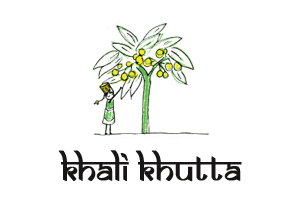
Natural products handmade in Nepal

